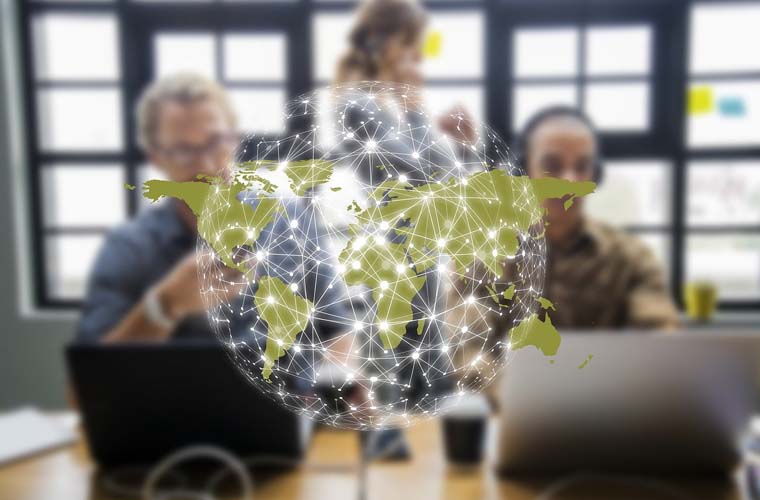Back in the day, Artificial Intelligence (AI) was just a pipe dream that people could only see in The Back to the Future movie series. Now, everyone can witness how it has evolved to become a major force for numerous industries because machines are just better than humans at physical tasks. They work faster, offer more precision, and carry heavier loads. Best of all, these machines never get tired. As a result, AI has been implemented in many industries. It has streamlined company operations, minimized expenditures, and reduced redundant tasks.
Because of the current acceptance of AI, coupled with the forthcoming future development in visual perception, machine learning, speech recognition, and other technologies, it is clear that AI will have significant ramifications in the world of business and employment. Like what happened in the Industrial Revolution’s mechanized manufacturing and factory systems, Artificial Intelligence is slated to make more drastic changes, which are exponentially swifter and wider in scope because modern technologies are even more advanced. Let’s take a look at the impact of AI in the workforce:
The All-Important AI Stats
Today, scientists predict that the area of AI will morph into a 190 billion dollar industry by 2025. This is not surprising at all become most of this modern and digital world’s activities include technologies like IoT, big data, and cloud computing. Even ordinary homes have not escaped the call of AI because with smartwatches, auto locks, programmable lights, intuitive TVs, and more. Everyone in the world is inclined to leverage technology to make life more convenient and easy.
AI is so powerful that it has augmented work in many industries such as robotic surgeries in healthcare, automated machines in production and manufacturing, computer-aided farming tools in agriculture, and more. Right now, reports attest that 29% of companies use AI for their operations because of its power to improve work efficiency and productivity. Industry experts forecast that this figure is set to increase in the coming days dramatically. Over the years, AI has already spearheaded a number of impressive and massive changes. However, these technologies that were once deemed cutting-edge a few years back are now considered obsolete thanks to continuous AI innovations.
The Double-Edged Sword
Companies just find it more practical to rely on a machine that can be programmed to deliver quality work consistently. Without any sick days and probable injuries to robots, businessmen see it as a better investment to leverage AI. Although it has a lot of benefits, unfortunately, the installation of AI means a decline in the workforce. By 2030, experts predict that 800 million jobs will be replaced by automated machines. With robots replacing humans in the factory line and other industries, more and more people are relying on unemployment funds. Sadly, the government is finding it hard to cope with the demands.
AI naysayers do point out the companies cannot just place their full trust in a machine. After all, robotic work cells can also make mistakes. There could be inefficiencies in installation, control errors and mechanical failures. Some AI tools are even prone to massive damage when they are unauthorized accessed. Most of all, since AI relies on machines, it is subject to outages due to environmental factors and power sources. Although AI can be incorporated by companies to make improvements, no one can completely do away with actual people.
Noteworthy, one of the biggest challenges of AI is its susceptibility to internet-based crime. With everything relying on connectivity, breaches of personal and financial information are set to increase. Hackers can readily find out sensitive data that is shared with a cloud. With reliance on machine learning, it is also a lot easier to invade privacy. The hacking of AI is a security crisis as criminals tamper numerous companies’ datasets.
The Possible Solutions
Because of an imminent threat in the coming years, 375 million workers globally have considered switching their professions. Others have reverted to updating existing skills or learning new skills because automation is stealing their jobs. If workers are serious about remaining marketable in the modern world, they will have to adapt. For instance, people say that self-driving cars are on the horizon, so those in the transportation sector need to engage in self-improvement and to expand their knowledge base so they can be employed elsewhere. Perhaps, it would be prudent to learn new software (which is a form of AI) that takes care of tedious office tasks.
As for the issue of privacy, companies can rely on AI-based routing to keep them safe. By installing VPN for all devices, along with tools and browser extensions that rely on AI, there can be a better delivery of services. With VPN installed, there are improved passthroughs, so companies are better equipped to ward off threats and attacks. With this kind of defense mechanism in place, there is peace of mind and assurance. With so many VPNs using AI to boost passthroughs and offer better encryption, this combination is crucial to addressing privacy protection online.
Final Word
Right now, Artificial Intelligence is intertwined in the many things that people do. From office software to computer language translations, it is hard to imagine life without. AI is a crucial part of this modern world, and people are facing an AI-driven reality. No matter how hard people resist because they fear for their jobs, it is clear as day that AI is here to stay. Businesses must adjust to it in order to stay ahead, just as workers have to transform themselves to remain competitive in a cutthroat job market.


